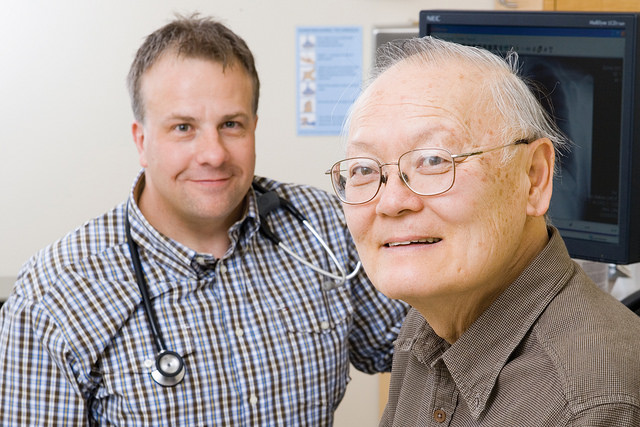
Image credit: Doctor and patient – Government of Alberta. Creative Commons License 2.0 (Non-commercial No Derivatives). Source: Flickr
In a systematic review published this month, we identified 153 communication skills training interventions for generalists in end of life care. In randomised controlled trials, training improved showing empathy and discussing emotions in simulated interactions (i.e. with actor patients) but evidence of effect on clinician behaviours during real patient interactions, and on patient-reported outcomes, was inconclusive.
The global increase in the proportion of older people and length of life means providing end of life care is now increasingly the responsibility of generalist as well as specialist palliative care providers. But many clinicians find communicating about end of life issues challenging: how do you best discuss imminent mortality, limited treatment options, what to expect when you’re dying, or a patient’s preferences for end of life care?
When this communication is done poorly, or not done at all, patients are confused and less satisfied with their care, experience inadequate symptom relief, and have worse quality of life. Staff who feel insufficiently trained in communication skills are more likely to provide depersonalised care and suffer from burnout.
While research in clinical communication has grown in recent years, there is little consensus on optimal training strategies and the most effective teaching methods. Continue reading →






